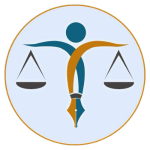Minimum Wage in Nepal 2080: Updated Minimum Salary Structure
Home About Us Classes Services Blogs X Make Appointment July 29, 2025 Juris Academy & Research Center Blog Minimum…

Data protection and privacy laws regulate how personal data is collected, stored, processed, and shared, with the primary goal of safeguarding individuals’ privacy. These laws ensure that data is handled lawfully, securely, and with consent—granting individuals the right to access, correct, or delete their personal information.
This article provides a concise overview of data protection regulations in Nepal.
Article 28 – Right to Privacy, Constitution of Nepal
Individual Privacy Act, 2018
Individual Privacy Regulation, 2020
Muluki Criminal Code, 2017
The Act and Regulation were enacted to:
Enforce the constitutional right to privacy concerning personal matters—body, residence, property, documents, data, correspondence, and character.
Ensure secure handling of personal data by public institutions.
Prevent unauthorized invasion of individual privacy.
The Act seeks to protect the fundamental right to privacy of all individuals. It covers:
Physical, familial, residential, and property privacy
Privacy of correspondence, character, and biometric data
Electronic data, including sensitive information
The law imposes responsibilities on public bodies that collect, use, or have access to personal information.
The law applies to the collection, storage, use, analysis, and processing of personal data of individuals residing in Nepal or located in Nepal. However, it does not clearly define extra-territorial applicability, particularly in regard to foreign entities without a physical presence in Nepal.
“Personal Information” includes:
Identity and demographic data (e.g., caste, ethnicity, religion, marital status)
Academic, contact, and biometric details
Government-issued identifiers (e.g., passport, citizenship, national ID)
Health, financial, criminal, and professional records
Opinions expressed by experts in decision-making contexts
The definition is narrower than the EU General Data Protection Regulation (GDPR), which recognizes any data that can directly or indirectly identify a person as personal information.
Sensitive Personal Information includes data revealing caste, ethnicity, political beliefs, religious views, health, sexual orientation, and property-related details.
Only an Authorized Person (designated by law) or someone permitted by them may collect or process personal data. They must:
Inform the individual about the purpose of data collection
Obtain explicit consent
The following must be disclosed to the data subject:
Time and method of data collection
Type and purpose of data
Process for verification and privacy assurances
Security measures in place for protecting the data
Processing is permitted only for the stated purpose and with the data subject’s consent. Misuse of data to defame, insult, or invade an individual’s private life is prohibited.
Public entities must prevent:
Unauthorized access
Improper use or alteration
Disclosure or publication without consent
Consent of guardians is required for minors or persons of unsound mind. However, data may be processed without consent:
If authorized by law
During criminal investigations or by court order
For national security, public safety, or law enforcement purposes
Sensitive personal data can only be processed for healthcare services or if the individual has made it public.
Although the Act assigns responsibility for storing and protecting personal data, it does not specify clear guidelines on data retention duration or procedures.
The law does not provide comprehensive rules on data transfer. However:
Consent is mandatory for any transfer to a third party
The following cannot be transferred without consent:
Health records
Financial/property details
Employment and family information
Biometric and signature data
Political or transactional data
Public institutions must:
Safeguard personal data they collect or manage
Avoid unauthorized disclosure or sharing
Prevent illegal processing of sensitive data
Rectify incorrect data upon receiving valid evidence—before any benefit has been derived from the inaccurate data
10.1 Right to Information and Access
Individuals have the right to be informed about:
The nature, purpose, and method of data collection
How their data is stored and protected
The safeguards against unauthorized access
10.2 Right to Rectification
If data held by a public entity is incorrect, individuals can request correction by submitting evidence. This must be done before benefiting from the information.
10.3 Right to Restriction
The Act lacks clear provisions for restricting data processing once consent has been given.
The law does not establish a central data protection authority or regulator. There is currently no dedicated body to oversee enforcement or handle data-related complaints.
Violation of privacy is a criminal offence in Nepal. Offenders may be prosecuted by either the affected individual or the state.
Prohibited acts include:
Collecting personal data without authorization
Failing to state the purpose of collection
Disclosing or publishing personal information without consent
Penalties include:
Imprisonment up to 3 years
Fines up to NPR 30,000
Compensation for damages, losses, or suffering caused to the individual
Disclaimer: This article is for general informational purposes only. It should not be interpreted as legal advice, solicitation, or communication from any legal firm or its members. The firm assumes no liability for actions taken based on the information provided herein.
Home About Us Classes Services Blogs X Make Appointment July 29, 2025 Juris Academy & Research Center Blog Minimum…
Home About Us Classes Services Blogs X Make Appointment July 29, 2025 Juris Academy & Research Center Blog Labour…
Home About Us Classes Services Blogs X Make Appointment July 29, 2025 Juris Academy & Research Center Blog Data…
Home About Us Classes Services Blogs X Make Appointment July 29, 2025 Juris Academy & Research Center Blog Trademark…

Exam Preparation Classes, We update about legal Education. Bar preparation/Justice Service & many more.
What we do
© Copyright by Juris Academy & Research Center – All right reserved.